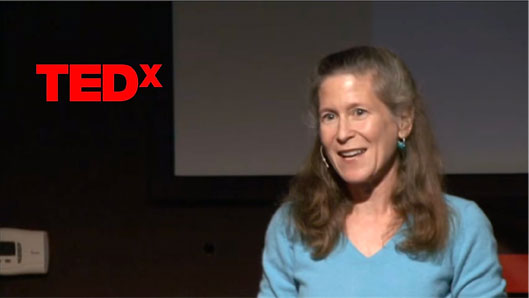Zoe (@ZoeWeil) is the co-founder & president of the Institute for Humane Education). She is considered a pioneer in the comprehensive humane education movement. She has authored seven books both for adults & children, including Most Good, Least Harm: A Simple Principle for a Better World & Meaningful Life. Zoe writes the Becoming a Solutionary blog at Psychology Today. She has made numerous TV & radio appearances and has given six TED talks, including “Extending our Circle of Compassion.”
In these Sentientist Conversations we talk about the two most important questions: “what’s real?” & “what matters?”
Sentientism is “evidence, reason & compassion for all sentient beings.”
The audio is also on our Podcast – subscribe on Apple here & all the other platforms here.
We discuss:
- Humane Education: Human rights, animal protection, environmental sustainability
- Growing up non-religious in New York but with Jewish heritage
- Having the label “Jew” but not knowing what it meant
- Taking courses on Orthodox Judaism at NYU. Finding the questioning & debate fascinating, but the “proofs of god didn’t seem like proofs”
- Taking a sense that “what you do mattered more than what you believe”
- Semester at Sea, staying on an ashram, visiting Israel & Japan. Exploring religion & meaning making
- Choosing to study religion rather than a scientific veterinary track
- Doing a Masters in Theological studies at Harvard Divinity School, focusing on what religions taught about animals & environment
- “I still don’t believe in god – the way god is described in most religions”
- “The mystery of the universe is awe-inspiring”. Calling it “god” feels like it’s narrowing something huge into something small
- Is religion restricting wonder rather than revelling in it?
- Does religion constrain the concept of god as the “universe” into something that looks remarkably like a human male?
- Awe and wonder and connection within a naturalistic worldview
- Unitarian universalism & the power of numinous, communal experience
- Is a secular life missing something profound? Do we need to make more of an effort than religious people to connect with it?
- Religious ethics often reflect the values of ancient, powerful humans (sexism, homophobia, caste discrimination)
- Being told “god is the only reason that prevents me from killing people”
- The MOGO principle: Striving to do the “Most Good, Least Harm” for people, animals and the environment
- Making personal choices & transforming systems.
- Zoe’s book “Most Good, Least Harm”
- Setting the scope of moral consideration
- Stopping for every dog on the street in Manhattan. Loving animals as a child
- Growing up during the Vietnam war & asking why “American” lives seemed to be more valued
- “Humans didn’t evolve to care about all 8 billion of us … yet we now live in a world where our choices impact other people and other species”
- Enjoying eating meat as a child + the conflict of realising what that did to animals
- Encountering Dr. Spock in Star Trek. Being vegetarian purely through logic
- It’s much easier being vegan now than 31 years ago
- Most people just go along with the default, with the system
- Changing the system (e.g. clean meat) will make it easier for people to act in line with the ethics they already have
- Being a “Solutionary”. Identify unjust, unsustainable, harmful systems and devise MOGO solutions
- “No judgement… just how do we solve this?”
- Ecocentrism, biocentrism, sentientism. Intrinsic & instrumental value
- The inconsistency of environmentalists ignoring the interests of many sentient beings
- A concern for species (endangered, invasive) vs. individual sentients
- Legitimate conflicts of interest vs. win-win-win situations (e.g. ending animal farming)
- The need for solutions & Just Transitions that show compassion for all sentients (including humans)
- Animal advocates compartmentalise too. Helping companion animals while eating farmed animals
- From Humanitarian to Sentientarian?
- Humane education as the route to a better world
- Education underpins all of our systems & thinking
- If we can educate a generation we can build a better world
- What’s important, what are you good at & what do you love to do?
- Open learning, engage all stakeholders, focus on solutions, via creative & systems & critical strategic thinking
- Evidence-based optimism & a Star Trek future.
- “Hope isn’t a pre-requisite – Just do the work”
Sentientism is “Evidence, reason & compassion for all sentient beings.” More at https://sentientism.info/. Join our “wall” using this simple form.
Everyone interested, Sentientist or not, is welcome to join our groups. Our main one is here on FaceBook.
Thanks Graham for the post-production. Follow him @cgbessellieu.

